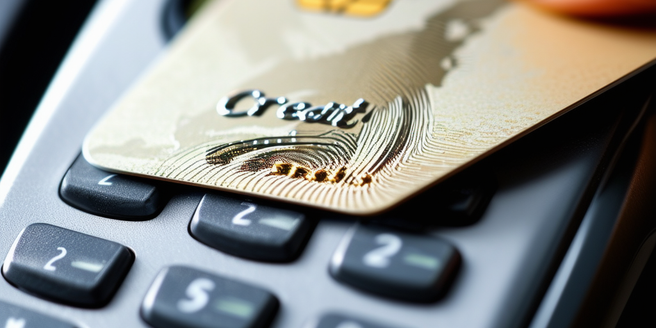
Understanding the Basics of Credit Cards
Credit cards are financial instruments issued by banking institutions and can be used to make purchases, withdraw cash, or accomplish balance transfers, essentially acting as short-term loans that need to be repaid. They are convenient for making purchases following the principle of buy now, pay later, but it’s key to note that the borrowed sum attracts interest and must be repaid with that interest.
These cards are subject to certain parameters such as the credit limit, which varies for each cardholder based on their credit history and should not be exceeded to avoid penalties and adverse effects on the credit score. Another critical aspect is the minimum payment structure, where cardholders must make a minimum payment by a specific due date every month, as otherwise, they could face late payment fees, other penalties, and a potential negative impact on their credit score. Thus, using credit cards wisely can lead to a rewarding financial experience.
Essential Factors to Consider Before Applying for a Credit Card
Before applying for a credit card, you should consider important factors like interest rates, associated fees, the credit limit, and the rewards program. Personal considerations such as income level, credit score and payment habits should also be taken into account as they significantly affect what kind of card you can apply for, its interest rate, and credit limit. Select a card that aligns with your spending habits and long-term financial goals, for example, travel rewards for frequent travelers or cashback for frequent online shoppers. The right card is not just about approval but finding the one that integrates with your lifestyle and finances. View this card not just as a financial tool but a partner that assists in personal money management. With careful consideration, it can meet financial goals and attain monetary stability.
Steps to Complete a Credit Card Application
The process involves filling out an application with extensive personal, employment, and financial information, ranging from identity verification to income and debt details. This data, including your credit history and outstanding debts, helps the issuer understand your financial standing. Once submitted, the issuer, typically a bank or a credit card company, examines the information and cross-references it with your complete credit report to assess your creditworthiness. The issuer can then decide on your credit application; the decision could be made instantly through an automated system, or it could take several days due to a thorough review. Regardless, the result will be conveyed once the issuer’s assessment of your creditworthiness is complete.
Dealing with Credit Card Application Denial
If your credit card application gets declined, it’s crucial to understand why and make necessary adaptations. The card issuer, by law, should provide reasons like poor credit score or unstable financial history, which can identify areas needing improvement. Analyzing and making necessary changes before reapplying helps to better assess your financial standing. This might involve, for instance, reducing your debt-to-income ratio. The card you initially applied for may not have been the best fit, so the rejection could signify a need to re-evaluate your options. A card more aligned with your financial circumstances could increase your chances of approval. Lastly, a rejection isn’t a dead-end but an opportunity for financial introspection and growth.
Tips for Managing Your New Credit Card
Responsible credit card usage requires diligence, discipline, and accountability, including maintaining good spending habits such as staying within your credit limit. Paying your bills on time helps avoid penalties that can negatively impact your financial status and lower your credit score. It’s advisable to monitor your account activity frequently to identify abnormalities or fraudulent activities early and control your spending habits. Understanding the benefits, like cashback or travel rewards, of your credit card is crucial as you could miss out on opportunities to make your money work for you by not using them. To ensure smooth communication, update your issuer about any changes in your contact information. In summary, being responsible with your credit card involves understanding your financial responsibility, staying in touch with your issuer and being diligent about spending habits, making your credit card work for you and not the other way around.
